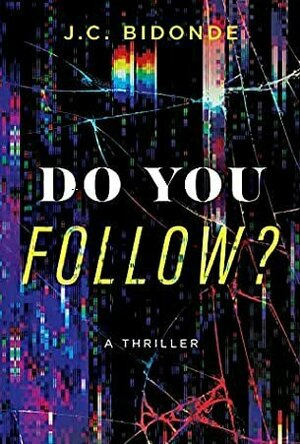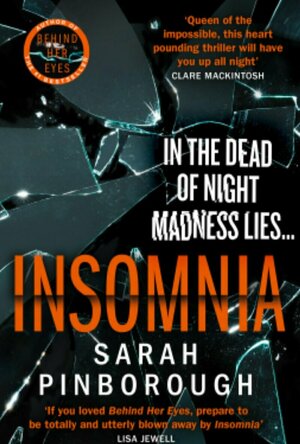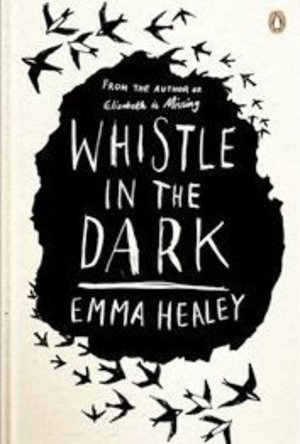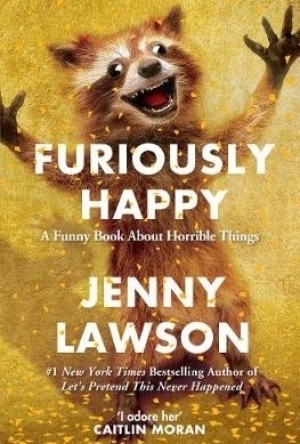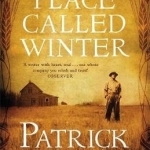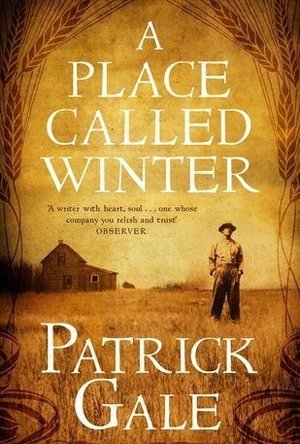Search
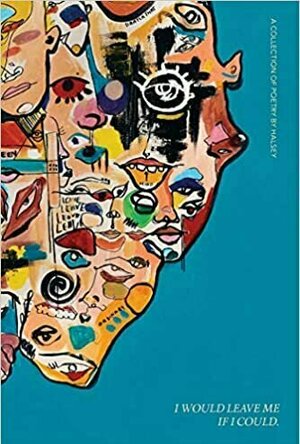
I Would Leave Me If I Could
Book
Grammy Award–nominated, platinum-selling musician Halsey is heralded as one of the most compelling...
Karla Dee (6 KP) rated Do you follow in Books
Jan 11, 2022
I truly enjoyed reading "Do You Follow" because I have a set of twins in my family. I am intrigued by the concept of Alexa and Beth who have both has psychiatric problems. I am a believer in twins having telepathic connections so this was a new twist. All readers will enjoy reading about the twins and their fascinating relationship.
There is a mental illness aspect of the story which can be taboo to talk about but I think it should become less taboo and more so spoke about so I liked that they addressed this aspect in the reading.
The characters were detailed and I glad to have found a connection with them. I enjoyed learning more about them, and their back-stories, as the novel progressed. Every time it's like getting to know a new mary kate and ashley, but there are always new surprises in a twin tale. Even though I guessed some of the plots and twists, there were still plenty of surprises.
Definitely recommend 9/10
There is a mental illness aspect of the story which can be taboo to talk about but I think it should become less taboo and more so spoke about so I liked that they addressed this aspect in the reading.
The characters were detailed and I glad to have found a connection with them. I enjoyed learning more about them, and their back-stories, as the novel progressed. Every time it's like getting to know a new mary kate and ashley, but there are always new surprises in a twin tale. Even though I guessed some of the plots and twists, there were still plenty of surprises.
Definitely recommend 9/10
Insomnia wasn’t at all what I expected - and that’s a good thing!
Emma is terrified that she will end up like her mother on her 40th birthday: which is only 12 days away. At the same age, her mother became paranoid and tried to kill Emma’s sister. She ends up in a psychiatric hospital for the rest of her life - but not before predicting that Emma will end up the same way.
Emma isn’t sleeping. Is the insomnia an understandable result of the worry and trauma caused by her mother, or is she really going to end up with the same mental illness?
Ooh, this was a twisty-turny one! When Emma starts ‘losing’ parts of her day, even I thought she was heading down the same path as her mother. Trying to keep her disturbed past and her successful present completely separate seems an impossible task, and really piles the tension on.
This was a very tense read, and I was completely hooked - this is one of those books that you won’t want to put down.
Emma is terrified that she will end up like her mother on her 40th birthday: which is only 12 days away. At the same age, her mother became paranoid and tried to kill Emma’s sister. She ends up in a psychiatric hospital for the rest of her life - but not before predicting that Emma will end up the same way.
Emma isn’t sleeping. Is the insomnia an understandable result of the worry and trauma caused by her mother, or is she really going to end up with the same mental illness?
Ooh, this was a twisty-turny one! When Emma starts ‘losing’ parts of her day, even I thought she was heading down the same path as her mother. Trying to keep her disturbed past and her successful present completely separate seems an impossible task, and really piles the tension on.
This was a very tense read, and I was completely hooked - this is one of those books that you won’t want to put down.
EL
Every Last Tie: The Story of the Unabomber and His Family
David Kaczynski and James Knoll
Book
In August 1995 David Kaczynski's wife Linda asked him a difficult question: "Do you think your...
Kristy H (1252 KP) rated Whistle In The Dark in Books
Mar 10, 2019
Jen Maddox is on holiday with her fifteen-year-old daughter, Lana, when Lana disappears. But, somehow, Lana is found four days later: confused and bloody, but in one piece. Jen and her husband, Hugh, are beyond relieved, but Jen cannot shake the fear plaguing her. Lana has struggled with depression these past few years. What happened over those four days? Why can't her daughter remember anything? Jen knows she should welcome Lana back with welcome arms, but she cannot rest until she knows what happened to her daughter.
This was a complicated read, which made me feel and think all sorts of feelings. I have to definitely point out that there are triggers for self-harm and suicide in this one. The book hit home for me, as I lost a dear cousin-who was more like a sister to me-to suicide. She was a little older than Lana when she died, but I saw a lot of similarity between the two, and I could understand some of Jen's frustration and sadness with her daughter because of it. Because, honestly, a lot of this book is just sad and depressing.
It's written in short snippets, not long chapters, each with a title, and they are all told from Jen's perspective. I would have liked to have heard from Lana sometimes. Because this is Emma Healey, many of these little pieces and insights are brilliant, truly. But, also, I won't lie, some of this book is a slog. It mirrors living with someone with depression--it's slow, painful, and tough. I wouldn't call this a fun read, even though I could definitely enjoy some of the breakthroughs and beautiful moments Lana and Jen did share.
While the premise of this book is finding out what happened to Lana, much of it is just Jen and Lana's daily life--trying to find themselves after Lana's disappearance. You see the guilt Jen feels about her daughter's mental illness and the complications of motherhood--how hard it can be. Jen's older daughter Meg and her husband, Hugh, are more supporting characters to the Jen and Lana show. There definitely are some humorous pieces among the sad parts--Jen and her husband struggling to raise a teen, Jen's interactions with her mom stand out. And Lana, as she comes across through her mom's eyes, is an interesting and dynamic character. Her grim sense of humor is enjoyable, too.
I found this novel to be very driven by emotions and to be a deep look at a family who is torn apart not only by Lana's disappearance, but by mental illness. I think, too, overall it does a very good job portraying what mental illness can do to a family. Even Lana's descriptions of what her depression feels like are quite well-done. So much of the book actually made me feel tense on Jen's behalf, and you just can't help but feel so sad and scared for both Jen and Lana. The little snippets of the book really do a good job of capturing moments--that is life, after all. A series of moments that add up.
I wish that Jen had been less obsessed with figuring out what had happened to Lana, but I think I can understand where it came from (her fear). For a little bit, I wasn't sure I could push through the book, but I was also motivated to figure out where Lana had been for those four days, and I was attached to Lana (and even Jen), I won't lie. The end of the book also redeemed it for me. There was something about it that made it all work.
This book isn't for everyone, and in some ways, I even have trouble recommending it for those who have struggled with mental illness, because it can be really triggering. Still, I think the author treated the topic very respectfully. I couldn't help but feel for Jen and I really found myself wanting to help Lana, to reach out to her. Healey really does know how to create nuanced characters. Still, if this is your first time reading her, I can't help but recommend the amazing Elizabeth Is Missing, which I just adore. Still, it has its lovely moments and is certainly well-written, if not a slow read.
I received a copy of this novel from the publisher and Edelweiss in return for an unbiased review (thank you!).
This was a complicated read, which made me feel and think all sorts of feelings. I have to definitely point out that there are triggers for self-harm and suicide in this one. The book hit home for me, as I lost a dear cousin-who was more like a sister to me-to suicide. She was a little older than Lana when she died, but I saw a lot of similarity between the two, and I could understand some of Jen's frustration and sadness with her daughter because of it. Because, honestly, a lot of this book is just sad and depressing.
It's written in short snippets, not long chapters, each with a title, and they are all told from Jen's perspective. I would have liked to have heard from Lana sometimes. Because this is Emma Healey, many of these little pieces and insights are brilliant, truly. But, also, I won't lie, some of this book is a slog. It mirrors living with someone with depression--it's slow, painful, and tough. I wouldn't call this a fun read, even though I could definitely enjoy some of the breakthroughs and beautiful moments Lana and Jen did share.
While the premise of this book is finding out what happened to Lana, much of it is just Jen and Lana's daily life--trying to find themselves after Lana's disappearance. You see the guilt Jen feels about her daughter's mental illness and the complications of motherhood--how hard it can be. Jen's older daughter Meg and her husband, Hugh, are more supporting characters to the Jen and Lana show. There definitely are some humorous pieces among the sad parts--Jen and her husband struggling to raise a teen, Jen's interactions with her mom stand out. And Lana, as she comes across through her mom's eyes, is an interesting and dynamic character. Her grim sense of humor is enjoyable, too.
I found this novel to be very driven by emotions and to be a deep look at a family who is torn apart not only by Lana's disappearance, but by mental illness. I think, too, overall it does a very good job portraying what mental illness can do to a family. Even Lana's descriptions of what her depression feels like are quite well-done. So much of the book actually made me feel tense on Jen's behalf, and you just can't help but feel so sad and scared for both Jen and Lana. The little snippets of the book really do a good job of capturing moments--that is life, after all. A series of moments that add up.
I wish that Jen had been less obsessed with figuring out what had happened to Lana, but I think I can understand where it came from (her fear). For a little bit, I wasn't sure I could push through the book, but I was also motivated to figure out where Lana had been for those four days, and I was attached to Lana (and even Jen), I won't lie. The end of the book also redeemed it for me. There was something about it that made it all work.
This book isn't for everyone, and in some ways, I even have trouble recommending it for those who have struggled with mental illness, because it can be really triggering. Still, I think the author treated the topic very respectfully. I couldn't help but feel for Jen and I really found myself wanting to help Lana, to reach out to her. Healey really does know how to create nuanced characters. Still, if this is your first time reading her, I can't help but recommend the amazing Elizabeth Is Missing, which I just adore. Still, it has its lovely moments and is certainly well-written, if not a slow read.
I received a copy of this novel from the publisher and Edelweiss in return for an unbiased review (thank you!).
Sam (74 KP) rated Furiously Happy in Books
Mar 27, 2019
I love reading books on mental health, with some of my favourites being Matt Haig’s Reasons To Stay Alive and Notes on a Nervous Planet, however Matt Haig’s stance is very serious. This is the complete opposite to that – it takes mental illness and turns it into something laughable and relatable.
And the relatableness was the reason that I enjoyed this so much. Lawson makes references to A Series of Unfortunate Events which everyone knows is one of my absolute favourite series of books. She also loves cats, which is the way to my heart.
Just before reading this, I had read Art Matters by Neil Gaiman, which is a collection of a few of his essays illustrated by Chris Riddell. Neil Gaiman talks about how he helped an author believe they could narrate their own audiobook by telling them to tell their self that they are a professional audio book narrator.
Seems unrelated? Well the weird thing is, in Furiously Happy, Lawson talks about when Neil Gaiman gave her some advice for narrating her own audiobook. This freaked me out a bit, especially since I had just picked up Furiously Happy on a whim.
Think of it as you like, but for me that was meant to be. It was proof that I was meant to find this book in a little charity shop.
Overall, I found the book to be a good giggle and I read it within a day. It’s definitely worth checking out if you are a fan of Matt Haig or if you just need a pick-me-up.
And the relatableness was the reason that I enjoyed this so much. Lawson makes references to A Series of Unfortunate Events which everyone knows is one of my absolute favourite series of books. She also loves cats, which is the way to my heart.
Just before reading this, I had read Art Matters by Neil Gaiman, which is a collection of a few of his essays illustrated by Chris Riddell. Neil Gaiman talks about how he helped an author believe they could narrate their own audiobook by telling them to tell their self that they are a professional audio book narrator.
Seems unrelated? Well the weird thing is, in Furiously Happy, Lawson talks about when Neil Gaiman gave her some advice for narrating her own audiobook. This freaked me out a bit, especially since I had just picked up Furiously Happy on a whim.
Think of it as you like, but for me that was meant to be. It was proof that I was meant to find this book in a little charity shop.
Overall, I found the book to be a good giggle and I read it within a day. It’s definitely worth checking out if you are a fan of Matt Haig or if you just need a pick-me-up.
Hazel (1853 KP) rated A Place Called Winter in Books
May 28, 2017
Loosely based on truth
This eBook was provided by the publisher via NetGalley in exchange for an honest review
Loosely based upon a true story, one of Patrick Gale’s ancestors in fact, A Place Called Winter follows the life of Harry Cane during the early 1900s. The book begins with Harry being transferred from a mental asylum to a therapeutic community called Bethel Ranch. The story then backtracks to Harry’s life as a young, nervous, motherless boy and the time he met his future wife, Winnie.
Throughout the book the reader is trying to guess the reason Harry eventually finds himself at Bethel Ranch. Gale describes Harry’s marriage, his discovery of homosexuality and his move to Canada to his final stop at a homestead in a place called Winter. Does Harry develop a mental illness or is it something to do with his scandalous desires? Or, does something else happen later in the book?
After moving to Canada, Harry does not exactly have it easy and the reader feels for him as he perseveres with his new life style. We watch him grow from a timid young man into someone with his own farm and independence. It makes it all the more upsetting to read when certain things take a turn for the worse.
In this historical novel, Patrick Gale emphasizes on the way homosexuality was regarded in society. Entire families cut people out of their lives at the slightest hint of a scandal. Gale also touches on the techniques used within mental asylums during this period as well as racial discrimination.
Occasionally, the story was difficult to read as it alternated between being really interesting and then slightly dull. Overall, regardless of how much was based on actual events, it was a good storyline, and once you have started reading you feel the need to continue to find out what happens to Harry. I have only read one other book by Patrick Gale – Notes From an Exhibition – that I struggled with a little. A Place Called Winter, however, was a lot better than I was expecting.
Loosely based upon a true story, one of Patrick Gale’s ancestors in fact, A Place Called Winter follows the life of Harry Cane during the early 1900s. The book begins with Harry being transferred from a mental asylum to a therapeutic community called Bethel Ranch. The story then backtracks to Harry’s life as a young, nervous, motherless boy and the time he met his future wife, Winnie.
Throughout the book the reader is trying to guess the reason Harry eventually finds himself at Bethel Ranch. Gale describes Harry’s marriage, his discovery of homosexuality and his move to Canada to his final stop at a homestead in a place called Winter. Does Harry develop a mental illness or is it something to do with his scandalous desires? Or, does something else happen later in the book?
After moving to Canada, Harry does not exactly have it easy and the reader feels for him as he perseveres with his new life style. We watch him grow from a timid young man into someone with his own farm and independence. It makes it all the more upsetting to read when certain things take a turn for the worse.
In this historical novel, Patrick Gale emphasizes on the way homosexuality was regarded in society. Entire families cut people out of their lives at the slightest hint of a scandal. Gale also touches on the techniques used within mental asylums during this period as well as racial discrimination.
Occasionally, the story was difficult to read as it alternated between being really interesting and then slightly dull. Overall, regardless of how much was based on actual events, it was a good storyline, and once you have started reading you feel the need to continue to find out what happens to Harry. I have only read one other book by Patrick Gale – Notes From an Exhibition – that I struggled with a little. A Place Called Winter, however, was a lot better than I was expecting.
Little Ray Of Sunshine (41 KP) rated Boys Don't Cry: Why I Hid My Depression and Why Men Need to Talk about Their Mental Health in Books
Jan 11, 2019 (Updated Feb 10, 2019)
Book Review | Boys Don't Cry: A Story of Love, Depression and Men by Tim Grayburn
Blurb
I have chronic depression and acute anxiety.
This means that sometimes without medication I can sink very deep and think about killing myself.
But it also means that most of the time I cam perfectly happy and I forgot it even exists.
I have recently begun to become proud of it.
Review
I haven't read much non-fiction books I'm always stuck in a fiction world. But when I saw this book I thought I want to read more about Mental Health with Mental Health Awareness Week coming up next week I thought why not.
This book is about Tim Grayburn a 'real man' who opens up and publish this book it about love, being diagnose with depression and acute anxiety. I feel this man is brave for sharing is struggles with mental illness.
It shows through hes life how he kept the secret for 8 years because he felt ashamed that he didn't feel like a man, so it got so worst that when he was aged 23 he had a nervous breakdown.He hide all this from hes work mates, family and friends for so long he put on a happy face to show people he was coping okay. But he kept having thoughts of his existence like who am I? Why am I here? What is life for? they kept repeating and playing over and over.
But I was happy that he found someone to settle down with and understand what he his going through and not run away. Now Tim is a father to his son Frank.
I love that he and Bryony made hes life into a award-winning show Fake it 'Til You Make It after he quit working in advertising what he was doing for 10 years.
Thank Tim for showing people who suffer with depression and anxiety that you can achieve amazing things like this show and your book.
*Thanks Hodder & Stoughton for sending me out this ARC copy of Boy's Don't Cry.
I have chronic depression and acute anxiety.
This means that sometimes without medication I can sink very deep and think about killing myself.
But it also means that most of the time I cam perfectly happy and I forgot it even exists.
I have recently begun to become proud of it.
Review
I haven't read much non-fiction books I'm always stuck in a fiction world. But when I saw this book I thought I want to read more about Mental Health with Mental Health Awareness Week coming up next week I thought why not.
This book is about Tim Grayburn a 'real man' who opens up and publish this book it about love, being diagnose with depression and acute anxiety. I feel this man is brave for sharing is struggles with mental illness.
It shows through hes life how he kept the secret for 8 years because he felt ashamed that he didn't feel like a man, so it got so worst that when he was aged 23 he had a nervous breakdown.He hide all this from hes work mates, family and friends for so long he put on a happy face to show people he was coping okay. But he kept having thoughts of his existence like who am I? Why am I here? What is life for? they kept repeating and playing over and over.
But I was happy that he found someone to settle down with and understand what he his going through and not run away. Now Tim is a father to his son Frank.
I love that he and Bryony made hes life into a award-winning show Fake it 'Til You Make It after he quit working in advertising what he was doing for 10 years.
Thank Tim for showing people who suffer with depression and anxiety that you can achieve amazing things like this show and your book.
*Thanks Hodder & Stoughton for sending me out this ARC copy of Boy's Don't Cry.
Hazel (1853 KP) rated A Place Called Winter in Books
Dec 17, 2018
<i>This eBook was provided by the publisher via NetGalley in exchange for an honest review</i>
Loosely based upon a true story, one of Patrick Gale’s ancestors in fact, <i>A Place Called Winter</i> follows the life of Harry Cane during the early 1900s. The book begins with Harry being transferred from a mental asylum to a therapeutic community called Bethel Ranch. The story then backtracks to Harry’s life as a young, nervous, motherless boy and the time he met his future wife, Winnie.
Throughout the book the reader is trying to guess the reason Harry eventually finds himself at Bethel Ranch. Gale describes Harry’s marriage, his discovery of homosexuality and his move to Canada to his final stop at a homestead in a place called Winter. Does Harry develop a mental illness or is it something to do with his scandalous desires? Or, does something else happen later in the book?
After moving to Canada, Harry does not exactly have it easy and the reader feels for him as he perseveres with his new life style. We watch him grow from a timid young man into someone with his own farm and independence. It makes it all the more upsetting to read when certain things take a turn for the worse.
In this historical novel, Patrick Gale emphasizes on the way homosexuality was regarded in society. Entire families cut people out of their lives at the slightest hint of a scandal. Gale also touches on the techniques used within mental asylums during this period as well as racial discrimination.
Occasionally, the story was difficult to read as it alternated between being really interesting and then slightly dull. Overall, regardless of how much was based on actual events, it was a good storyline, and once you have started reading you feel the need to continue to find out what happens to Harry. I have only read one other book by Patrick Gale –<i> Notes From an Exhibition</i> – that I struggled with a little. <i>A Place Called Winter, however, was a lot better than I was expecting. </i>
Loosely based upon a true story, one of Patrick Gale’s ancestors in fact, <i>A Place Called Winter</i> follows the life of Harry Cane during the early 1900s. The book begins with Harry being transferred from a mental asylum to a therapeutic community called Bethel Ranch. The story then backtracks to Harry’s life as a young, nervous, motherless boy and the time he met his future wife, Winnie.
Throughout the book the reader is trying to guess the reason Harry eventually finds himself at Bethel Ranch. Gale describes Harry’s marriage, his discovery of homosexuality and his move to Canada to his final stop at a homestead in a place called Winter. Does Harry develop a mental illness or is it something to do with his scandalous desires? Or, does something else happen later in the book?
After moving to Canada, Harry does not exactly have it easy and the reader feels for him as he perseveres with his new life style. We watch him grow from a timid young man into someone with his own farm and independence. It makes it all the more upsetting to read when certain things take a turn for the worse.
In this historical novel, Patrick Gale emphasizes on the way homosexuality was regarded in society. Entire families cut people out of their lives at the slightest hint of a scandal. Gale also touches on the techniques used within mental asylums during this period as well as racial discrimination.
Occasionally, the story was difficult to read as it alternated between being really interesting and then slightly dull. Overall, regardless of how much was based on actual events, it was a good storyline, and once you have started reading you feel the need to continue to find out what happens to Harry. I have only read one other book by Patrick Gale –<i> Notes From an Exhibition</i> – that I struggled with a little. <i>A Place Called Winter, however, was a lot better than I was expecting. </i>
Whatchareadin (174 KP) rated 72 Hour Hold in Books
May 10, 2018
Your daughter has just turned 18 and recently diagnosed with bi-polar disorder. After being placed on a 72-hour hold she is released from the hospital. When you go to pick her up, she is gone and there is nothing you can do about it. She's technically an adult, so she is free to go about her business. Meanwhile, you worry, where is she, what is she doing, is someone hurting her, is she hurting herself. What measures would you go through to protect your child, even though she is an "adult". How can you help someone who doesn't want to be helped. Would you take drastic measures to insure that your daughter gets all the help she needs. Her father is in denial and the support group just says, "Hang in there!" After the 3rd or 4th 72-hour hold for her daughter, Trina, Keri tries some extreme measures to help her daughter with her mental illness. Going through her own struggles in trying to help her daughter, Keri finds out a lot about her lie and the life of her daughter, and exactly how to help them both.
